
DOROTHY F. COTTON is a lifelong activist and visionary dedicated to social justice. She lives in Ithaca, New York, where the Dorothy Cotton Institute of Cornell University was recently launched as a tribute to her legacy. For more information visit www.dorothycotton.com.
SimonandSchuster.com
 Facebook.com/AtriaBooks
Facebook.com/AtriaBooks  Twitter.com/AtriaBooks
Twitter.com/AtriaBooks


A Division of Simon & Schuster, Inc.
1230 Avenue of the Americas
New York, NY 10020
www.SimonandSchuster.com
Copyright 2012 by Dorothy F. Cotton
All rights reserved, including the right to reproduce this book or portions thereof in any form whatsoever. For information, address Atria Books Subsidiary Rights Department, 1230 Avenue of the Americas, New York, NY 10020.
First Atria Books hardcover edition September 2012
ATRIA BOOKS and colophon are trademarks of Simon & Schuster, Inc.
Unless otherwise noted in the caption, all photographs are courtesy of the author.
The Simon & Schuster Speakers Bureau can bring authors to your live event. For more information or to book an event, contact the Simon & Schuster Speakers Bureau at 1-866-248-3049 or visit our website at www.simonspeakers.com.
Designed by Dana Sloan
Jacket design by Jae Song
Jacket photograph courtesy of author
Author photograph by Clay Carson
Library of Congress Cataloging-in-Publication Data
Cotton, Dorothy F.
If your backs not bent : the role of the Citizenship Education Program in the civil rights movement / Dorothy F. Cotton.
p. cm.
1. Cotton, Dorothy F., 1930 2. African American women civil rights workersBiography. 3. African American women educatorsBiography. 4. Civil rights movementsUnited StatesHistory20th century. 5. African AmericansCivil rightsHistory20th century. 6. Citizenship Education ProgramHistory.
7. Southern Christian Leadership ConferenceHistory. 8. United StatesRace relationsHistory20th century. I. Title.
E185.97.C83A3 2012
323.092dc23 2012004463
[B]
ISBN 978-0-7432-9683-0
ISBN 978-1-4391-8742-5 (eBook)
TO MY FATHER, CLAUDE DANIEL FOREMAN, who served his country as a navy man in the Second World War only to live through the pain of being refused entry to a restaurant in Atlanta, Georgia. He was with three of his White navy buddies; all were in uniform. They stayed at the restaurant to have their meal without him. Daddy said he would never go back to Atlanta.
How I would love to say, Daddy, you can go back now. My special friend Andrew Young has been the mayor for two terms. You will be welcomed.
He didnt live to see the changes in race relations that his daughter struggled to help bring about.
And to the many hundreds of people whose names are never mentioned as participants in the civil rights movement. These people were abused and some died as they struggled to change the system that did not acknowledge their rights as citizens.
THE REST OF THE WAY
I went into the silence
to note what I could hear.
There were voices loud and clear
yet no one was near.
Perhaps not voices but SPIRIT
There to cheer me
To cheer me on.
I calmed myself
with open mind and heart.
I felt a surge of strength.
Voices came that made things clear:
I have plotted a journey for you
Do not hold back; go!
Onward and up.
I will light your path.
The blocks in the road
Will make you bold,
Will open your heart.
Your desire to heal will
Make you strong
Will clear your mind.
In the silence you will
be infused with a Spirit;
a Spiritreadily available to
one such as you.
One who is ready, willing, open,
Hungry for Truth!
You are anointed by my Spirit
Know this.
As you are infused with my Spirit
You will know love,
You will show love,
and cause it to stir
in all you encounter.
When you feel unclear
just hang in there;
I will light your way.
I will give you clarity of purpose;
I will guide you to where your
skills are needed.
Imprinting on the minds and hearts
Of those you touch
You will gain the Spirit of love
the ability to see those
you touch.
An openness to great and
healing values,
They will be yours
to share.
I will remove walls of hatred
and intolerance
a new era will arise
a new country will appear.
You will be called to
let your light shine
Showing others the way forward
on this journey,
this blessed journey.
DOROTHY F. COTTON
Foreword
by Andrew Young
T HE CIVIL RIGHTS movement had not yet discovered womens rights when Dorothy Cotton joined the Southern Christian Leadership Conference in 1960. Dorothy came with her Boston University masters, teaching credentials from Virginia State University, and a personality bubbling like fine champagne to be the only woman executive in the recently formed organization and was determined not to be intimidated by the gathering of young, self-important egomaniacs who became the staff that would ultimately change the South and impact the planet.
Dorothy was the right woman in the right place at the right time, so Wyatt Tee Walker, the newly appointed executive director, invited her to join the staff as education director. There were very few of us who had academic, administrative, and movement experience in 1960, so Dorothy was charged with developing a department that would train new leaders for this burgeoning movement and ensure that the disciplines of nonviolence and good citizenship prevailed over the anger, frustration, and bitterness that tended to dominate the Black community.
As the staff grew, Dorothy assumed a very natural role as everybodys sister. The men began to relate to one another through her. The precise enunciation and elocution of her speech demanded that her opinions earn respect. Her charm and effusive personality inspired admiration and also kept potential male admirers at bay; her quick wit crushed many egos.
The Education Department soon became the Citizenship Education Program, which originally set out to train two hundred leaders across the South. Each country or rural village had someone that everyone respected, the Wise Elder, though they were often young people. They were people of courage and insight, the natural leaders, people with Ph.D. minds who often had never received much formal education. These were the leaders who became the foundation of the nonviolent movement.
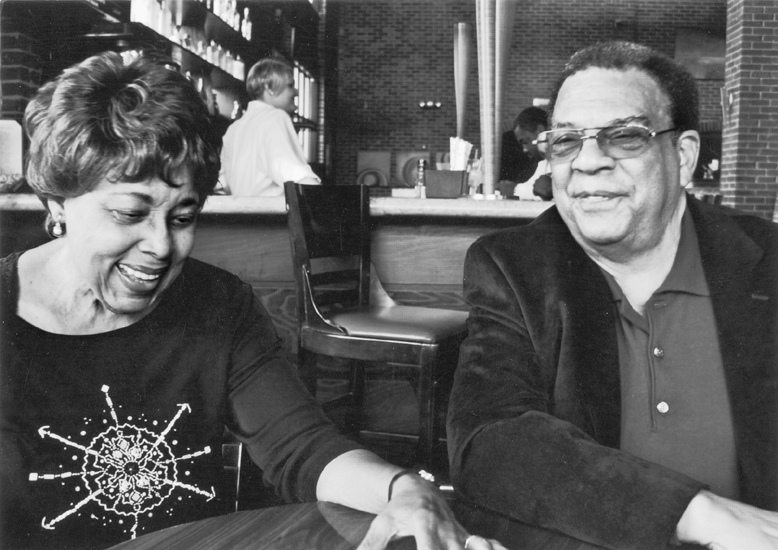
Andrew Young and me. (Photograph courtesy of Clayborne Carson)
Introduction
by Vincent Harding
A T THIS POWERFUL moment in the life of our nation it is clear that Dorothy Cottons importantand long-awaitedmemoir opens a crucial opportunity for us to wrestle with several essential matters concerning our past, present, and future engagement in the continuing national experiment known as the quest for a just and compassionate multiracial democracy in America. Indeed, at the heart of Dorothys account is the story of her crucial role as director of education for the Southern Christian Leadership Conference (SCLC), the freedom movement organization led by Martin Luther King Jr. That was the rich, challenging, and boundless context in which my friend played such a central part in developing SCLCs Citizenship Education Program (CEP) in the 1960s, leading one of the movements most important contributions to the continuing American search for a more perfect union.
Next page
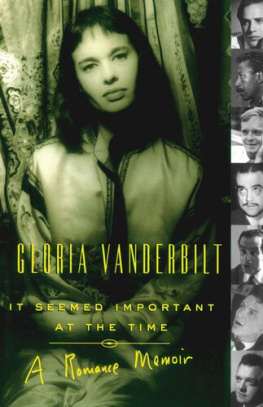
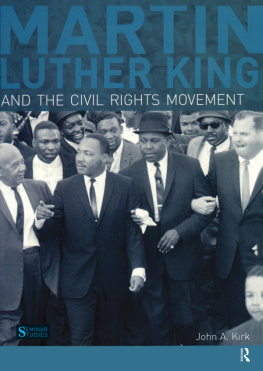
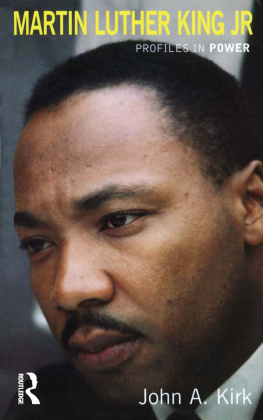
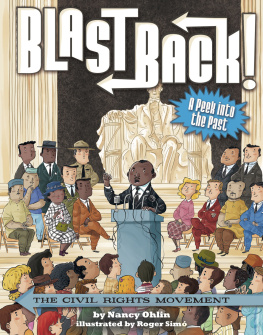

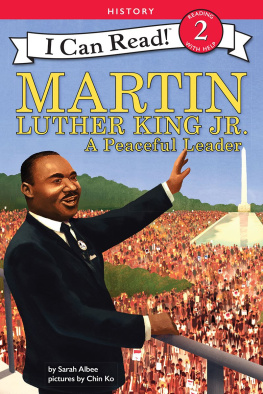
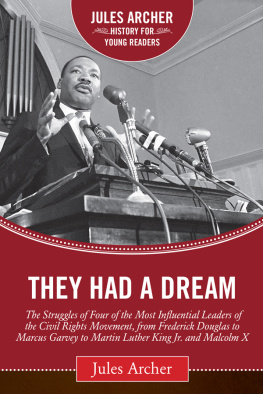



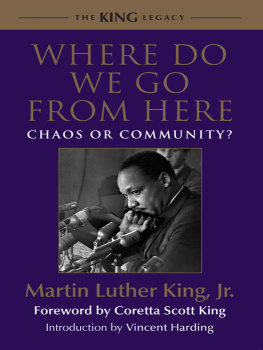

 Facebook.com/AtriaBooks
Facebook.com/AtriaBooks  Twitter.com/AtriaBooks
Twitter.com/AtriaBooks

